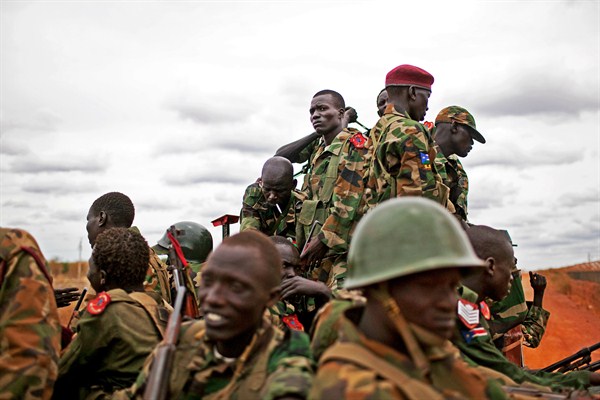Seven months after fighting broke out between the government of South Sudan and anti-government forces, the conflict is at a stalemate, both on the battlefield and at the negotiating table. Unlike the early days of the conflict, when cities like Bor, Bentiu and Malakal changed hands multiple times, the status quo has largely held since the onset of the rainy season in May.
The Intergovernmental Authority on Development (IGAD)—the East African regional organization that spearheaded the peace process between Sudan and now-independent South Sudan in the 1990s—has taken the lead to bring the government, represented by the ruling Sudan People’s Liberation Movement (SPLM), and anti-government forces, such as the SPLM-in-Opposition (SPLM-IO) and former political detainees, to the negotiating table. Despite several agreements signed by both sides, however, negotiations in neighboring Ethiopia have not led to a resolution of the conflict or a way out of the current crisis.
Complicating any settlement is the fact that Uganda, an IGAD member, intervened on the side of the government in the early days of the conflict. It has since resisted calls by other members of the international community to withdraw from South Sudan. Although Uganda has purposely distanced itself from the negotiations, the presence of Ugandan troops in parts of South Sudan presents a conflict of interest for IGAD and a point of contention for anti-government forces. However, while controversial, the Ugandan intervention may also be responsible for evening the odds in Juba’s favor.

